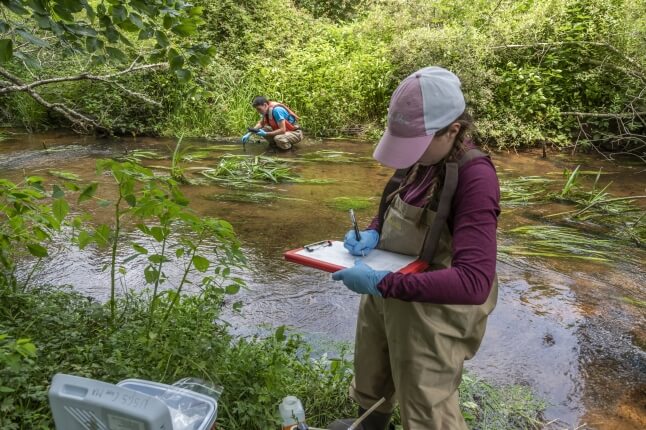News
John Briscoe. (File photo by Jon Chase, Harvard Staff Photographer.)
John Briscoe, Ph.D. '76, for several years a faculty member at the Harvard School of Engineering and Applied Sciences, Harvard Kennedy School, and the Harvard T.H. Chan School of Public Health, passed away on November 12. He directed the Harvard Water Security Initiative and taught undergraduate and graduate courses on water management and development.
When he received the prestigious Stockholm Water Prize in spring 2014, the committee noted his “unparalleled contributions to global and local management of water—contributions covering vast thematic, geographic, and institutional environments—that have improved the lives and livelihoods of millions of people worldwide.”
Adam Bernstein at the Washington Post published an obituary on November 17, 2014, an excerpt of which follows here.
John Briscoe, a leading authority on water resources who championed dams as an essential anti-poverty tool, helping reverse a prevailing view at the World Bank that such projects were mostly environmental and social menaces to the developing world, died Nov. 12 at his home in Poolesville, Md. He was 66.
The cause was colon cancer, said his wife, Conceicao Andrade.
Since 2009, Dr. Briscoe had been professor of the practice of environmental engineering and environmental health at Harvard and director of the university’s Water Security Initiative.
In a four-decade career spanning as many continents, he had been a water engineer in Mozambique, an epidemiologist focusing on cholera research in Bangladesh, and World Bank country director for Brazil.
He was associated with the World Bank from 1986 to 2008, many of those years as senior water adviser shaping a $40 billion portfolio of water resource, irrigation, hydropower and sanitation projects.
In September, King Carl XVI Gustaf of Sweden presented Dr. Briscoe with the $150,000 Stockholm Water Prize, the most prestigious award in global water management. The honor cited “his fusion of science, policy and practice, giving him unrivalled insights into how water should be managed to improve the lives of people worldwide.”
Dr. Briscoe spent his early childhood in a South African mining town “at the edge of the desert,” an experience that shaped his work on alleviating water scarcity. After studying environmental engineering at Harvard in the early 1970s, he spent several formative years working in Bangladesh and Mozambique.
He said residents appreciated new schools and lending practices brought from the outside, but their livelihoods improved dramatically only with the coming of roads and bridges and the building of embankments to stanch flooding. Many interviews with villagers only confirmed this view, he said.
By the time Dr. Briscoe arrived at the World Bank, lending for infrastructure projects was under attack and “social-sector lending” on health and education had become a priority. Many dam projects were scuttled as the bank became a target for environmental nongovernmental organizations and protesters with general grievances against what they saw as a corporate model of development.
The complaints, Dr. Briscoe said, often came from places where the lights and water flowed with regularity because of hydrodams.
“Time and time again I have seen NGOs and politicians in rich countries advocate that the poor follow a path that they, the rich, never have followed, nor are willing to follow,” he once wrote.
He warned that such “breathtaking hypocrisy” would provoke developing countries to “turn, with great appreciation, to the governments and companies of China and Brazil . . . who understand that electricity is one of the keys to a better life, and who will help Africans build the infrastructure they need for economic growth and poverty reduction.”
Read the entire article in the Washington Post
Topics: Environment
Cutting-edge science delivered direct to your inbox.
Join the Harvard SEAS mailing list.



